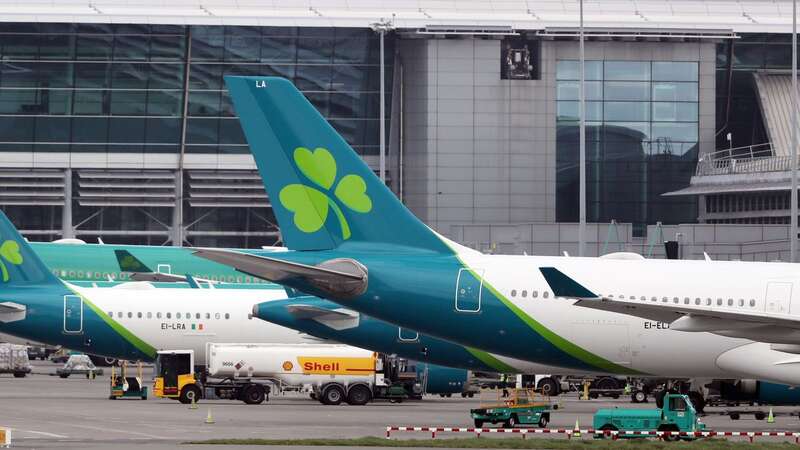
Aer Lingus and pilots' representatives were due to attend crunch meetings on Tuesday as hopes rose that industrial action could be averted.
The airline has already axed more than 200 flights, impacting 35,000 passengers, ahead of the action by members of the Irish Air Line Pilots' Association (IALPA). It comes amid a row over pay with pilots seeking a 24% pay increase and the airline offering up to 12.5%.
The work-to-rule action is set to run from Wednesday to Sunday, with an eight-hour strike planned for Saturday. Both Aer Lingus and IALPA confirmed that they would attend separate meetings at the Labour Court on Tuesday. Irish premier Simon Harris welcomed the development.
Earlier, Aer Lingus offered to meet the pilots in a bid to resolve the row. Both sides described the move as "positive" and said they were hopeful that they could meet this week. The more conciliatory tone came after tense exchanges between Aer Lingus and IALPA in recent days.
Aer Lingus had previously branded the pilots' industrial action "insidious" and compared it to "blackmail", while pilots accused the company of threats and "antagonism". The airline reveals it has alerted all passengers impacted by the multitude of cancellations and managed to provide 80% with alternatives such as a refund or rebooking.
 Spain holidays could be hit as 17 airports set to face months of strikes
Spain holidays could be hit as 17 airports set to face months of strikes
Taoiseach Mr Harris voiced his concerns over the Aer Lingus dispute during a meeting at the Labour Employer Economic Forum (LEEF) on Monday. LEEF, composed of representatives from the government, employers, and trade unions, serves as a discussion platform for economic and employment issues impacting the labour market.
Mr Harris said: "These meetings provide an opportunity to try to make progress and ensure the travelling public are not further affected by this dispute." Ireland's deputy premier Micheal Martin was queried regarding the issue while attending a meeting in Luxembourg on Monday morning.
He described it as "shocking the degree to which the needs of those who travel are, in my view, being ignored in the context of this dispute". He added: "There's only one way to resolve this, it's through negotiations and getting around the table. It is that simple, by the way,".
"All disputes end and the most effective way that they end is by utilising the industrial relations machinery that we have available in the State, which is the WRC (Workplace Relations Commission) and the Labour Court. I would appeal to both sides to get around the table."
Read more similar news:
Comments:
comments powered by Disqus

































